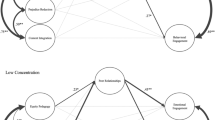Abstract
Although a great deal of literature contrasts the Chinese learner with Western learning conceptions and practice, a closer look at these studies reveals that many are explored through the lens of cultural knowledge and assumptions. The results of these studies generate a distorted understanding of Chinese students. Moreover, students’ learning is best explained in the context of local environments. This study therefore examines the “Chinese learner” through a case study of mainland Chinese postgraduate students’ intercultural learning experiences at British universities. The results show that learning beliefs and behaviors evolve as individuals participate in authentic situations. It is essential to break the stereotypes of Chinese students and constantly document the progress of their learning so as to generate effective intercultural pedagogy and practices in culturally diverse classrooms. Further, how Chinese students approach their learning is a complex phenomenon with multiple facets interacting including external factors, namely sociohistorical, cultural, and academic contexts, and internal factors, such as each student’s intellectual development. Academic staff in multicultural classrooms should recognize not just similarities but also diversity of students from the same culture and amend their teaching practices in response to students’ developing needs and interests.
Similar content being viewed by others
References
Arkoudis, S., & Tran, L. T. (2007). International students in Australia: Read ten thousand volumes of books and walk ten thousand miles. Asia Pacific Journal of Education, 27(2), 157–169.
Back, A., & Barker, M. (2002). Counselling students from Confucian-background countries. In: Paper presented at the 13th National conference of ISANA 2002: Diversity in practice conference, Launceston, Tasmania.
Castles, S. (2004). Migration, citizenship, and education. In J. Banks (Ed.), Diversity and citizenship education: Global perspectives (pp. 17–48). San Francisco: Wiley.
Charmaz, K., & Mitchell, R. G. (2001). Grounded theory in ethnography. In P. Atkinson, A. Coffey, S. Delanont, J. Lofland, & L. Lofland (Eds.), Handbook of ethnography (pp. 161–174). Thousand Oaks, CA: Sage.
Cross, J., & Hitchcock, R. (2007). Chinese students’ (or students from China’s) views of UK HE: Differences, difficulties and benefits, and suggestions for facilitating transition. The East Asian Learner, 3(2), 1–31.
Durkin, K. (2011). Adapting to Western norms of critical argumentation and debate. In L. Jin & M. Cortazzi (Eds.), Researching Chinese learners: Skills, perceptions, and intercultural adaptations (pp. 274–291). London: Palgrave Macmillan.
Edwards, V., Ran, A., & Li, D. (2007). Uneven playing field or falling standards? Chinese students’ competence in English. Race Ethnicity and Education, 10(4), 387–400.
Fang, T. (1999). Chinese business negotiating style. Thousand Oaks: Sage.
Gieve, S., & Clark, R. (2005). “The Chinese approach to learning”: Cultural trait or situated response? System, 33, 261–276.
Gu, Q., Schweisfurth, M., & Day, C. (2010). Learning and personal growth in a “foreign” context: Intercultural experience of international students. Compare, 40(1), 7–23.
Kettle, M. (2005). Agency as discursive practice: From “nobody” to “somebody” as an international student in Australia (1). Asia Pacific Journal of Education, 25(1), 45–60.
Marginson, S. (2014). Student self-formation in international education. Journal of Studies in International Education, 18(1), 6–22.
McLean, P., & Ransom, L. (2005). Building intercultural competences: Implications for academic skills development. In J. Carroll & J. Ryan (Eds.), Teaching international students: Improving learning for all (pp. 45–62). London: Routledge.
Portera, A. (2011). Intercultural and multicultural education: Epistemological and semantic aspects. In C. A. Grant & A. Portera (Eds.), Intercultural and multicultural education: Enhancing global interconnectedness (pp. 12–30). New York: Routledge.
Ramburuth, P., & McCormick, J. (2001). Learning diversity in higher education: A comparative study of Asian international and Australian students. Higher Education, 42(3), 333–350.
Rastall, P. (2006). Introduction: The Chinese learner in higher education—Transition and quality issues. Language, Culture and Curriculum, 19(1), 1–4.
Robson, C. (2002). Real world research: A resource for social scientists and practitioner-researchers (2nd ed.). Oxford: Blackwell.
Ryan, J. (2011). Teaching and learning for international students: Towards a transcultural approach. Teachers and Teaching, 17(6), 631–648.
Ryan, J. (2013). Listening to “other” intellectual traditions: Learning in transcultural spaces. In J. Ryan (Ed.), Cross-cultural teaching and learning for home and international students (pp. 279–289). London: Routledge.
Ryan, J., & Louie, K. (2007). False dichotomy? “Western” and “Eastern” concepts of scholarship and learning. Educational Philosophy and Theory, 39(4), 404–417.
Silverman, D. (1997). Towards an aesthetics of research. In D. Silverman (Ed.), Qualitative research: Theory, method, and practice (pp. 239–253). London: Sage.
Sit, H. W. (2013). Characteristics of Chinese students’ learning style. IPEDR-Language, Media, and Culture II, 62(8), 36–39.
Strauss, A., & Corbin, J. (1998). Basics of qualitative research: Techniques and procedures for developing grounded theory (2nd ed.). Thousand Oaks, CA: Sage.
Tang, S. (1999). Student evaluation of teachers: Effects of grading at college level. Journal of Research and Development in Education, 32(2), 83–88.
Tian, M., & Lowe, J. (2013). The role of feedback in cross-cultural learning: A case of study of Chinese-taught postgraduate students in a UK university. Assessment and Evaluation in Higher Education, 38(5), 580–598.
Turner, Y. (2013). Pathologies of silence? Reflecting on international learner identities amidst the classroom chatter. In J. Ryan (Ed.), Cross-cultural teaching and learning for home and international students (pp. 15–26). London: Routledge.
Watkins, D., & Biggs, J. (1996). The Chinese learners: Cultural, psychological, and contextual influences. Hong Kong/Melbourne: Comparative Education Research Centre/Australian Council for Education Research.
Wu, Q. (2014). Motivations and decision-making processes of mainland Chinese student for undertaking master’s programs abroad. Journal of Studies in International Education, 18(5), 426–444.
Author information
Authors and Affiliations
Corresponding author
Rights and permissions
About this article
Cite this article
Wu, Q. Re-examining the “Chinese learner”: a case study of mainland Chinese students’ learning experiences at British Universities. High Educ 70, 753–766 (2015). https://doi.org/10.1007/s10734-015-9865-y
Published:
Issue Date:
DOI: https://doi.org/10.1007/s10734-015-9865-y




